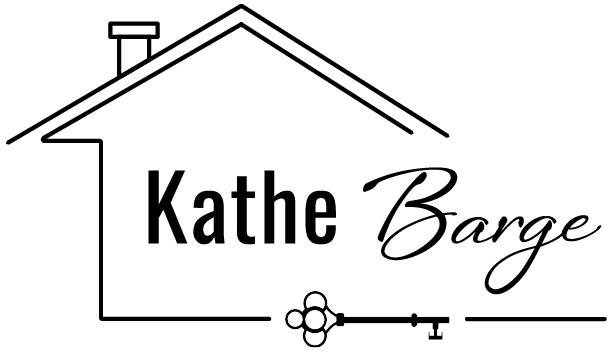by Kathe Barge | Oct 5, 2020 | Contracts, Inspections, Listings, Real Estate, Sellers
 We hear that selling a home can be a trying process. They say forewarned is forearmed. Any annoyances a seller should be expecting?
We hear that selling a home can be a trying process. They say forewarned is forearmed. Any annoyances a seller should be expecting?
Below is a short list of many of the “joys” sellers might experience during the listing process. Being aware that these are possibilities will hopefully help you take them in good humor if they happen to you!
- The agent showing your home will miss appointments and not call or show up.
- Appointments will be made and cancelled at the last minute.
- Some showings will last about five minutes and some will last 3 hours.
- Agents showing your home will forget to turn lights off.
- Agents showing your home will let your pets out (best to remove them from your home for showings) or your neighbor’s pet in.
- Agents will provide unhelpful feedback – buyers buy homes when they attach emotionally to a home and when they don’t, their feedback is often nonsensical.
- Agents will not provide any feedback – incredibly annoying, I know.
- Expect lowball offers (at least it is a starting point).
- Things will come up on the inspection that you had no idea were wrong with your home and you will be sure the inspector made a mistake or the buyer will make ridiculous inspection requests. Remember this easy rule of thumb – if the requests total less than 1% of the sales price, its usually best to agree to the requests, regardless of how ridiculous they might be.
- The buyer will ask to bring in contractors for estimates for work they want to do after the closing at the seemingly most inconvenient times.
- The property might not appraise at what you are selling it for – with the hot market we are in and with homes often selling in bidding wars with multiple offers, there is a risk you might have to make a downward adjustment in your sales price.
- The closing date on the contract may change. Again, lenders are overwhelmed right now and \many closings have been delayed, sometimes for a week or more. This does not mean that your buyer cannot buy your home – it just means lenders are overwhelmed and missing deadlines – be prepared to be patient.
[contact-form-7 id="115311" title="Get More Information Form"]
by Kathe Barge | Jan 26, 2017 | Blog, Buyers, Inspections, Listings, Pittsburgh, Real Estate, Sellers, Sewickley, Sewickley Herald
Can we choose a buyer’s agent even if we have seen homes with the listing agents?
The answer is an unequivocal yes! As a buyer, you are absolutely entitled to choose your own representation in a transaction. It might be that the listing agent is in fact the individual that you feel will best represent you – approximately 1/3 of my transactions involve dual agency, and they proceed smoothly for all parties. But if you have been looking at homes or going to open houses and find the perfect agent for you in that process, it is fine to engage that agent as your representative even if you have seen homes with other agents.
It is of course in your best interests to ultimately select and work exclusively with a buyer’s agent. Your buyer’s agent should provide a personalized high level of service to you. When viewing homes, you should expect your buyer’s agent to provide you with information about the home, neighborhood and community to help you in your decision making process. You should expect your buyer’s agent to provide you with an analysis of comparable sales, develop a negotiating strategy and help you analyze and negotiate the home inspection. These are important benefits that you will receive when you engage a buyer’s agent that cannot be provided in the absence of that relationship.
Many buyers use open houses and viewings with listing agents as their opportunity to interview agents and determine who will best represent them as a buyer’s agent. This makes complete sense if you do not have a prior agency relationship that you were pleased with. Transitioning between homes is a very personal process that can, for some, also be very stressful. For many of us, it also involves the purchase and/or sale of our largest asset. The importance of due diligence, reference checking and interviews cannot be overstated when choosing your real estate representative, and once you have made that decision, it is important to communicate that to other real estate agents when interacting with them. I will be hosting an open house this Sunday, 1-3pm, at 30 Wilson Drive in Ben Avon Heights and next Sunday, February 5, 1-3 pm at 1008 Beaver Street in Sewickley – stop by, check out these amazing homes, and if you don’t already know me, I would love the opportunity to meet you!
[contact-form-7 id="115311" title="Get More Information Form"]
by Kathe Barge | Jan 10, 2017 | Blog, Inspections, Listings, Pittsburgh, Real Estate, Sellers, Sewickley, Sewickley Herald
If there was one thing you would advise us to do to our home this year, what would that be?
Whether you are planning to sell your home this year or not, the best thing you can do to your home this year is a home inspection! We all live in our homes but rarely take the time to stop and give them a careful look. Weather beats up the outside of our homes year round. Caulking fails, flashing fails, paint peels and exposes wood to rot. We forget to clean our gutters on a regular basis – gutters and downspouts fill with decaying debris, causing water to back up into our homes and cause mold problems. We forget to have our furnaces serviced and fittings loosen and cause condensate to leak and rust our furnaces. The list goes on and on. Simply living in and not doing a regular check up on your home, you are leaving it open to the possibility of major repair bills later and major depreciation in your investment’s value. A home inspection will give you a to do list of projects to tackle throughout the year to keep your home in great shape and maintain its value!
You may not think about this until you go to sell your home. Some of the wear and tear may be obvious to a buyer, who will typically have checked out every available home, be able to see signs of your “benign neglect,” and pass on yours because of its comparatively negative condition. Even if a buyer doesn’t’ notice at first, there is no doubt that a home inspector will notice! After working hard to get your home sold, you may find yourself in the all too common situation of being presented with a long list of inspection requests that you need to complete in order to hold your deal together, or worse yet, a buyer who backs out of your deal because the house needs “too much work,” leaving you in the position of having to fix everything and start all over again. A homeowner should expect simply keeping a home in acceptable condition will cost them $3,000 – $10,000 a year, depending on the size of the home – some years wil be more if its time for a major project, and some less. If you’re not investing this, chances are someday you will when you are faced with a long list of inspection issues.
The first thing on my household resolution list this new year is a home inspection and I suggest you add it to the top of your list as well. Give me a call if you need the names of reputable local inspectors.
[contact-form-7 id="115311" title="Get More Information Form"]
by Kathe Barge | Oct 27, 2016 | Blog, Home Staging, Listings, Pittsburgh, Real Estate, Sellers, Sewickley, Sewickley Herald
Dear Kathe:
We may move out and leave our home vacant and for sale – is there anything special we should know?
First and most importantly, you must consider your insurance coverage. If you have a loss and you have not notified your insurance company that you have vacated the home, they may deny coverage for your loss. Some companies may not provide coverage for your vacant home and you will need to switch insurers. Some will provide coverage for a limited amount of time, and some will provide coverage as long as you leave your furniture in place. However, most will deny coverage for any loss related to water, so whenever you leave a home vacant for any amount of time, its important to turn the water off at the main. If its winter time, you should consider having a plumber professionally winterize your home.
Second its rarely a good idea to leave a home totally empty. Some homes do show better without the owner’s furniture, but even in those cases its important to leave bathrooms, the kitchen, fireplace mantles… staged so that the home feels loved and inviting to prospective buyers. Be sure to have a few lights on timers – buyers often drive by homes at night and you don’t want yours looking haunted! Of course, there are professional home stagers that can help you with any level of staging, whether its working with your existing furnishings, accessorizing bathrooms and the kitchen, or bringing in new furniture to fill the empty space.
You should have a house keeper who comes monthly to keep the home fresh and bug free and a yard service to keep the yard freshly mown and free of weeds, as well as leaves rank and snow shoveled. Finally, you should be sure to keep the temperature set at a comfortable temperature – in the winter no lower than 60 degrees and preferable 65 degrees.
Leaving a home vacant certainly makes showings easier, but it does require some extra attention to make sure the home does not feel abandoned and remains appealing to prospective buyers!
by Kathe Barge | Oct 21, 2016 | Blog, Contracts, For Sale By Owner, Inspections, Mortgage, Pittsburgh, Real Estate, Sellers, Sellers-Contracts, Sewickley, Sewickley Herald
Dear Kathe:
What assurances are there to a seller that if they enter into a contract to sell their home, it will actually close?
Reaching an agreement on the sale of your home is an important first step to getting your home closed. However, before a seller has any assurance that a home will actually close, several hurdles must be overcome. First, the inspections have to be completed. In most instances, the buyer has the right to terminate a transaction if they learn anything on the inspection that they are uncomfortable with, and in almost every instance, the buyer has the right to terminate if the seller does not agree to make the buyer’s requested repairs. So a seller has no assurances at all that their home will close until the inspection period is complete, which generally takes 21 days.
The same thinking would apply if the Agreement includes an appraisal contingency – until the appraisal is complete (which also takes 21-30 days), there is a risk that the home will fail to appraise and the transaction will not close.
If the buyer has a mortgage contingency, then there is a risk until a “clean” commitment letter is received from the lender that the buyer will not get their loan approved, in which case the transaction will not close. Usually it takes about 45 days from the date of agreement to know with any certainty that the buyer has received a loan commitment.
There is also the rare instance where a buyer never provides the contractually specified deposit money or second deposit money. This is a breach of agreement and if this happens, it’s reasonably unlikely that the buyer will cure that breach and close.
Finally, very rarely there are buyers who complete all of the steps in the process and just refuse to close. In those instances, the seller is often entitled to the deposit money, but that may seem like a small consolation prize when their home is empty and back on the market.
Working with a skilled real estate professional will help you to manage the risks and move toward a successful closing. So while the short answer is that there is never a guarantee until the home actually closes, with proper management of the details the risk to a seller of moving out and leaving behind an empty home can be minimized.
by Kathe Barge | Oct 6, 2016 | Blog, Buyers, Inspections, Listings, Market Trends, Marketing, Pittsburgh, Real Estate, Sellers, Sewickley, Sewickley Herald
Dear Kathe,
We have our home listed with another agent and are unhappy with the service we are receiving. We can’t help but wonder what process we should have gone through to find the right agent. Any ideas?
When choosing a Realtor, it’s important to do more research than asking a colleague, friend or service provider who they would recommend. I often help my clients find an agent in the new city they are moving to, and I start online.
First, I look for agents who do a lot of business in the area my client is moving to. How many listings does the agent have? I look at her sold listings on Zillow and see how many she has sold, both in the area and in the price range my clients will be buying into to make sure she has the experience they will need.
I then look at her individual website for her certifications and qualifications. These credentials require extensive commitment to training by the agent, and training means the agent is best equipped to achieve the very best result for you. Much of this training requires years of dedication to learning and excellence. All agents are not brokers, for example. An Associate Broker’s license takes a minimum of three years commitment to additional learning and hands on experience. If you are buying or selling a Signature home, there is an even higher level of training available to an agents such as Distinctive Homes Specialist. Christie’s Great Estates Specialist. These programs add yet another level of skill and expertise to an agent’s repertoire.
I like to say “a monkey can stick a sign in your yard.” It takes years of training and experience though to sell real estate while making it look smooth and easy. By earning credentials, we learn how to price optimally, how to market strategically, how to use the latest technology for your benefit, the complex ins and outs of our lengthy Agreement of Sale (the intricacies of which are just waiting to ensnare the inexperienced), how to negotiate for success, how to navigate the rough seas of inspections and how to close on time. Every one of these skills inures directly to your benefit and your bottom line.
I also look to see how developed her website is (is it more than a simple blurb) and how many reviews/ quality of reviews she has on Zillow. This gives a sense of how committed the agent is to the business.
Finally, I interview the prospective agents to determine marketing plans, detailed knowledge of the area and their personal market statistics. So take the time – get to know our credentials – and make an educated decision when choosing your next real estate agent.
by Kathe Barge | Sep 8, 2016 | Blog, Buyers, Inspections, Listings, Market Trends, Marketing, Pittsburgh, Real Estate, Sellers, Sewickley, Sewickley Herald
Dear Kathe,
We want to downsize but are not sure how to go about that process – do we buy our new home first or sell our current one first?
Your question touches on one of the trickiest scenarios in real estate – sell first or buy first? The answer is different depending on an individual’s circumstances. Buying first is usually the best choice – you can take your time finding the perfect next house. And you can move out of your current home before listing it for sale, which will allow you to stage and present the home without clutter and without the hassle of having to tidy up for showings. However, buying first requires a few things. You must qualify to own two homes at once. You must have a down payment for your new home in a savings account, or an existing home equity line in place on your current home that will allow you to pull out the cash you need for a down payment. And you must be okay with the concept that you may be carrying two homes for an undefined amount of time.
If you do not qualify to own two homes at one time, do not have the required down payment for the new home, or are just too nervous about owning two homes for an undefined amount of time, then your only option is to sell first. It’s a good idea before putting your home on the market to get pre-approved for your new home purchase (you want to be sure you qualify before selling yourself out of your existing home) and to start looking online for new home possibilities. When you get an offer, you may need to act quickly. The buyer for your home is unlikely to be able to wait for you to figure out what you are going to do next. If you need to wait to figure that out, you may lose the buyer. Additionally, to purchase a new home, that seller is likely going to expect that you have already moved through inspections on your current home and have a solid deal. Therefore, you will want to agree to a longer closing date on your current home to give you time to get through the inspection negotiations and select a new home. Of course, there is always the option of renting if you cant find the right home!
It is tricky, but with proper strategic guidance it can be accomplished smoothly and successfully.
by Kathe Barge | Jun 9, 2016 | Blog, Marketing, Pittsburgh, Real Estate, Sellers, Sewickley, Sewickley Herald
Dear Kathe,
How much more “life” do you think our spring market has left in it?
My crystal ball is out being repaired so I’m afraid my response will need to be a best guess, without it’s reliable aid! In all honesty, what the market is or is not doing in a given week or season is never more than a guess. There are certain norms that we have come to count on: the spring market is stronger than the fall market; homes in the Village sell faster than homes “up the hill,” which often require more patience. But being able to predict how long buyers will continue buying in any season, or how many buyers companies may transfer in, or how many buyers will accept the jobs they are offered and actually come to Pittsburgh, choosing Sewickley as their home base, is impossible to predict with any certainty.
And of course, there is the added uncertainty of what impact a Presidential election has on our market – historically it often slows around election time. It’s been a strong spring market. Buyers have come in waves – there was a huge surge in the March. Sales have been strong in certain brackets and not in others, but that could change on a dime. We saw a small surge “up the hill” but that market has quieted again.
To answer your question, I expect sales to continue along their usual patterns, with a reasonable number of sales in June and some in July as well. We are in our final push of families who need to be in for the school year. I expect that things will slow as they always do in August when most people desert Sewickley! Usually things pick back up again in October. If your home hasn’t sold yet, there is still a chance it could sell this spring, particularly if its well conditioned and priced perfectly. If you are thinking about listing in the future, it’s the perfect time to give me a call and develop a strategic plan for entering the market in the months to come!
by Kathe Barge | Jun 2, 2016 | Blog, Home Staging, Listings, Marketing, Pittsburgh, Real Estate, Sellers, Sewickley, Sewickley Herald
Dear Kathe,
Why does it seem that almost every home we view online is so neutral? What happened to all the color?
I recently reviewed a portion of a local market in the mid-price ranges and interestingly, almost every home that is under agreement has zero wallpaper and is painted in a neutral color palate (including beiges, grays, greiges and a few other nearly neutral tones). Only one of these homes had any true color on its walls, and that home took nearly a year and several price drops to go under agreement.
Professional home stagers have been counseling for years to remove all wallpaper before putting your home on the market –asking someone to buy a home with wallpaper is as personal as asking them to buy someone else’s wedding dress. No matter how beautiful, it’s rarely done and appeals to very few. Stagers are also quick to recommend neutralizing your paint palate. While there are some warmer neutrals, these days the cooler neutrals like gray and greige are the more popular tones with the buying public. Even having a more colorful child’s room can be a big turnoff.
It seems the selling public has in large part heeded this advice. The homes that are actually selling for the most part have been stripped of their wallpaper and painted in a more current, more neutral paint palate. Absent a compelling reason to choose a home that is not “sale ready” such as a severely discounted price, buyers are far more likely to overlook other “road blocks” to a sale such as a lack of a garage than they are to look past a personalized and colorful decorating scheme.
Does this mean that we must all live in color-free homes? Of course not! Your home should reflect your personality and your personal furnishings undoubtedly tie your color choices together. But it is important when we move toward a customized design scheme to remember that when its time to sell, part of the cost of selling will be repainting these spaces back to a more neutral palate!
by Kathe Barge | May 26, 2016 | Blog, For Sale By Owner, Listings, Marketing, Pittsburgh, Real Estate, Sellers, Sewickley, Sewickley Herald
Dear Kathe,
We have noticed that several homes have sold lately before they have hit the MLS. Are these “pocket listings” a good way to sell your home?
If a home sells before it hits the MLS, as a “pocket listing” as they are often called, it is highly likely that the seller could have sold the home for significantly more money. The MLS exposes a home to a large number of prospective buyers in a very short amount of time. This widespread exposure is what has the potential to drive the price up for the seller.
A “pocket listing” is more like a secret sale. The agent you are dealing with may have a buyer that is willing to buy your home, but if it’s that easy, chances are you could have received more money if the general public had a chance at your home, and a bidding war could have possibly ensued. If an agent is being straightforward with the seller and discusses the strategies involved with using the market pressure of the MLS to drive in a higher price, it’s a rare seller who will willingly leave money on the table.
So why do we occasionally see these seemingly “secret sales” taking place? Some sellers perceive these pocket listings as a good thing – some don’t want to be hassled with multiple showings, some don’t want the general public to know their home is available for sale. Some agents choose this strategy because they want to keep all of the commission for themselves and that only happens if their own buyer is the successful bidder. If a seller’s goal is to maximize financial return, however, a pocket listing, or accepting an agreement of sale before the home is marketed in the MLS, is rarely the best strategy.
So no, my 17 years experience indicates that a pocket listing is usually not in a seller’s best interests. The highest returns I have seen sellers achieve occur in scenarios when they have used strategies to maximize the excitement within the buying community through proper pricing, excellent conditioning and staging and full MLS exposure.
by Kathe Barge | May 19, 2016 | Blog, Listings, Marketing, Pittsburgh, Real Estate, Sellers, Sewickley, Sewickley Herald
Dear Kathe,
Why do some homes seem to fly off the market and others take years to sell?
Location. Price. Condition. These are the three most important factors that go into how long a home is on the market. Unique attributes and depth of market segment would be fourth and fifth!
Location is really where it all begins. If your home is in an easy to sell location, the market will be far more tolerant of imperfections in other areas, such as wallpaper or a slightly aggressive price. Location is sometimes relative to a particular buyer – their work address may make one part of town more desirable than another, but generally speaking, buyer excitement about properties rises and falls with address.
Condition is also a very important factor in pricing. Homes that look like they are straight from the pages of a Pottery Barn catalog tend to sell more quickly, and tend to bear higher prices than are sometimes warranted. Those that are dated, with older wallpaper and carpeting, for example, tend to sit – unless, of course, they are in a hot location and deeply discounted, in which case our stable of “flippers” will be ready to buy with cash and close quick for the opportunity at a profit when they renovate.
Price is the easiest of all factors to change. If priced well, even less popular locations and homes that have condition challenges can sell quickly. But if you are trying to match the price of competing sales that were in better locations, better condition or with more amenities, you may find your home takes far longer to sell.
Finally, you may have a home with unique features. A home with no off-street parking can be a challenge to sell at any price point, and it is a matter of being patient and waiting for the right buyer who appreciates the home’s other attributes. You may not have a master bathroom. You may not have any green space in your “yard.” You may have a kitchen barely big enough for one. You may have only two bedrooms. There are many factors that could lengthen time on the market even with perfect condition and price. And of course, depth of the market segment is relevant as well. The higher you go in price, the fewer qualified buyers there will be and the longer your home will take to sell.
by Kathe Barge | May 12, 2016 | Blog, Home Staging, Listings, Marketing, Pittsburgh, Real Estate, Sellers, Sewickley, Sewickley Herald
Dear Kathe,
Our home is on the market and not sold – where are the buyers this spring? How can we get it sold?
Our spring market has seen some very unusual fluctuations. In some weeks there have been surges, with several houses going under agreement in a week, and other weeks have been quiet. The one million dollar price range has been hot for the first time in a couple of years. The under $300,000 market is also moving very well. If you’re home is in the “middle” then yes, it’s been slower than expected and it’s hard to know why. Speculation has included the election, of course, as well as cutbacks in some oil and gas companies.
Sadly, real estate agents don’t have magic wands that we can wave to make a buyer appear for your home. If it’s been on the market for more than a few weeks it’s likely the local prospects have seen it and determined that its not a fit for them. The most likely buyer is someone currently outside the area, and there is just no predicting when a company is going to relocate someone who might be looking for a home.
Therefore, what you must do is make sure it is the best choice in the price range when a buyer does arrive on the scene. It is important to make sure that it shows perfectly – there is a lot of competition – other sellers who really want a buyer as well. I have written many articles that you can find on my blog at www.kathebarge.com that cover critical topics like de-cluttering and staging, and updating your home. It might be time to bring in a professional stager. It might be time to update paint colors, freshen any dated carpets, update lighting fixtures or baths. Many of these things can be done very cost effectively and could give your home the edge with the next buyer through town.
It may also be time to have a professional appraisal done of your home, both to check to make sure that you have it priced competitively and to give any buyer prospects confidence that the value is there.
In the end, homes with completely updated features and current design palates continue to be the first ones to sell. If that’s not your home and changes aren’t possible, then review price, do the best you can to stage and de-clutter, and then be patient. Buyers can be very fickle – your buyer will come!
by Kathe Barge | Apr 14, 2016 | Blog, Buyers, Mortgage, Pittsburgh, Real Estate, Sellers, Sewickley, Sewickley Herald
Dear Kathe,
Is a seller expected to help pay for the buyer’s closing costs and if so, how much?
Sellers often contribute to buyers’ closing costs in lower price ranges and in first time home buyer situations. Typically buyer closing costs are not less 3% of the cost of the home and may be as much s 6%. Buyer closing costs include expenses such as transfer taxes (1%), lender fees, title insurance, property tax proration, homeowners’ insurance premiums and pre-paid mortgage interest. These fees can add up quickly. Sometimes buyers do not have enough cash saved to be able to pay their required down payment and their closing costs as well. They may be very well qualified to buy in that their salary is high enough to afford the monthly payment, but they just don’t have enough cash saved.
When this happens, buyers will look to sellers for help in paying the closing costs that the buyer would normally have paid. This is normally expressed as a percentage of the purchase price. For example, the buyer might ask the seller to pay 3% of the purchase price toward their closing costs. The seller is automatically netting 3% less in this scenario, before they pay their own closing costs which normally range between 7% – 8% of the sales price.
Before you jump to the conclusion that sellers often won’t agree to contribute toward a buyer’s closing costs, stop and look at the greater picture. Normally sellers who help with closing costs are receiving 100% (or very close to that) of their asking price. On the other hand, it’s a rare day that any listing sells for 100% of its asking price, and the average “realization” before seller expenses in Quaker Valley School District is less than 90%. So paying 3% in closing cost assistance but getting a 100% (or close) offer might be your best deal!
 We hear that selling a home can be a trying process. They say forewarned is forearmed. Any annoyances a seller should be expecting?
We hear that selling a home can be a trying process. They say forewarned is forearmed. Any annoyances a seller should be expecting?




